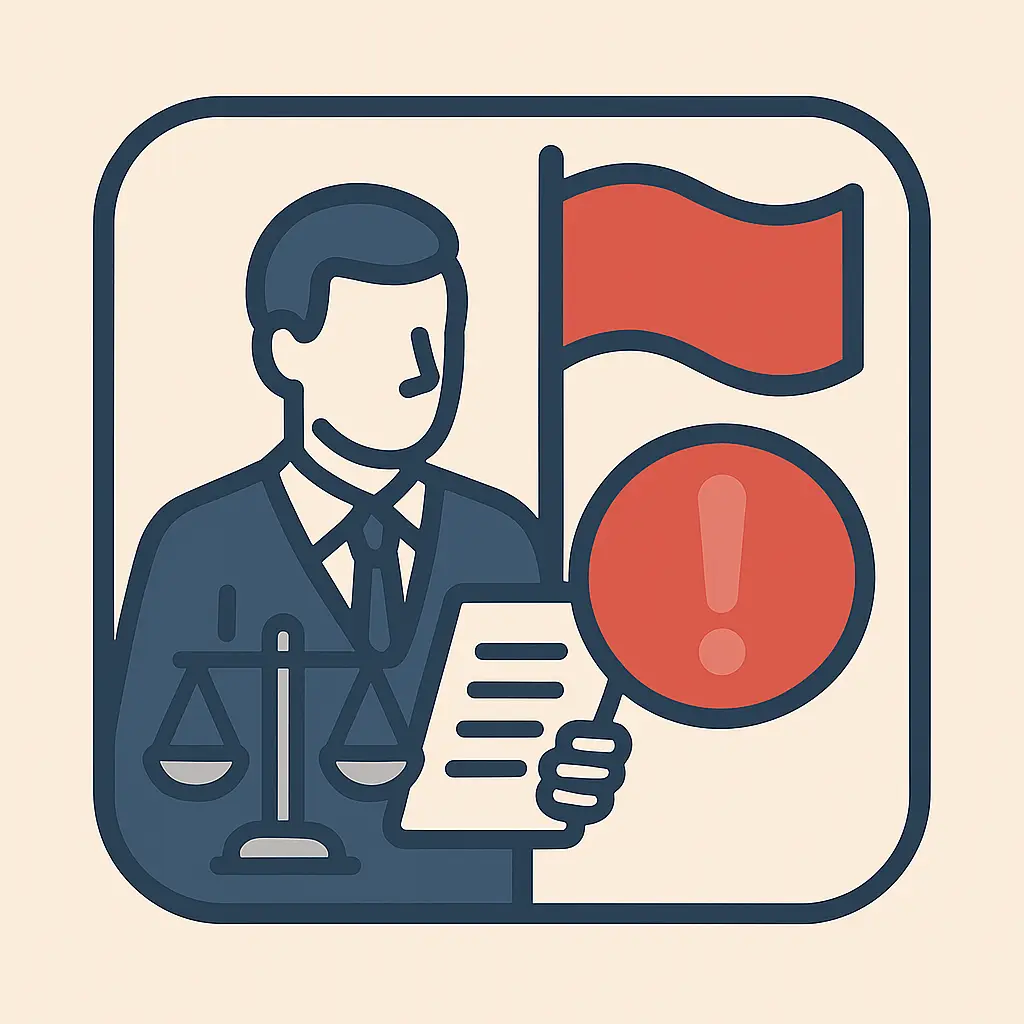In the practice of law, discernment is as critical as advocacy. While many clients present legitimate needs and compelling cases, others may carry risks that jeopardize your time, reputation, or ethical standing. Taking on the wrong client can lead to unexpected economic, ethical, and legal consequences. While an attorney might one day regret not taking on a promising client, no attorney should feel remorseful about declining to represent clients exhibiting “red flags”. Whether you’re a seasoned litigator or building your book of business, here are ten red flags that should prompt pause—and possibly a polite decline.
1. Unrealistic Expectations
A client who insists their case is “a guaranteed win” or demands a seven-figure settlement without clear liability or damages is waving a bright red flag. These expectations often lead to dissatisfaction, fee disputes, or malpractice claims when reality sets in.
2. Serial Attorney Switching
If a prospective client has cycled through multiple attorneys in a short span—especially with vague or hostile explanations—consider why. Each engagement had one thing in common – the client. It may reflect an inability to collaborate, follow advice, respect professional boundaries, or payment risk.
3. Shifting or Inconsistent Narrative
When a client’s story changes between meetings or contradicts documents you have reviewed, credibility becomes a concern. In litigation, your client’s truthfulness is not optional—it’s foundational. Beware the evasive client. The client who is not forthcoming with his or her counsel is unlikely to be cooperative in the discovery process or credible when questioned under oath. Similarly, beware the inaccessible client and the client that fails to attend scheduled meetings, calls, or appearances.
4. Fee Evasion or Ambiguity
Clients who resist signing engagement letters, balk at retainers, or push for contingency arrangements in inappropriate contexts may be signaling financial instability or a lack of respect for your time and expertise. Such tactics suggest your billing will be excessively scrutinized and challenged.
5. Vengeful Motives
“I want to destroy them” is not a litigation strategy. Clients driven by revenge rather than resolution often pursue scorched-earth tactics that waste resources and invite sanctions. While clients are entitled to zealous representation, scorched-earth tactics undertaken for an improper motive and that are disproportionate to the needs of the case are more costly, exponentially increase disputes, risk sanctions, and diminish the reputation and credibility of counsel and client should they cry foul to the court in the same matter.
6. Loose Lips and Leaky Privilege
If a client casually shares case details with third parties, cc’s third-parties that are not covered by the attorney-client relationship, posts about the matter online, and desires to try a dispute in the press, they may compromise confidentiality and privilege—putting both the case and your professional obligations at risk.
7. Micromanagement of Strategy
While collaboration is welcome, clients who demand to approve every email, filing, or phone call can erode your autonomy and efficiency. While a client has the right to make the ultimate decisions regarding the objectives of his or her case, such as whether to settle, the day-to-day legal tasks undertaken in furtherance of the client’s goals fall within the attorney’s province. Trust is a two-way street, and without it, representation suffers.
8. Prior Fraud or Criminal Conduct
A client who admits to falsifying documents, engaging in tax evasion, or committing perjury in a related matter raises serious ethical concerns. You may be required to withdraw—or worse, report.
9. Disrespectful or Abusive Behavior
Threats, insults, or volatile emotional outbursts toward you or your staff are non-negotiable deal-breakers. Your firm’s safety and morale matter as much as your pocket.
10. Hidden Relationships or Conflicts
Clients who fail to disclose personal or financial ties to key witnesses or opposing parties can jeopardize your representation and expose you to disciplinary action. Transparency is essential.
Final Thought
The best client relationships are built on trust, clarity, and mutual respect. Spotting red flags early is not just about protecting yourself—it’s about preserving the integrity of your practice and ensuring that your time is spent where it can do the most good.
Share any war stories about the client you are glad you did not take on or the lessons learned from one you wish you had not in the comments.
Discover more from A Lawyer In Florida
Subscribe to get the latest posts sent to your email.





